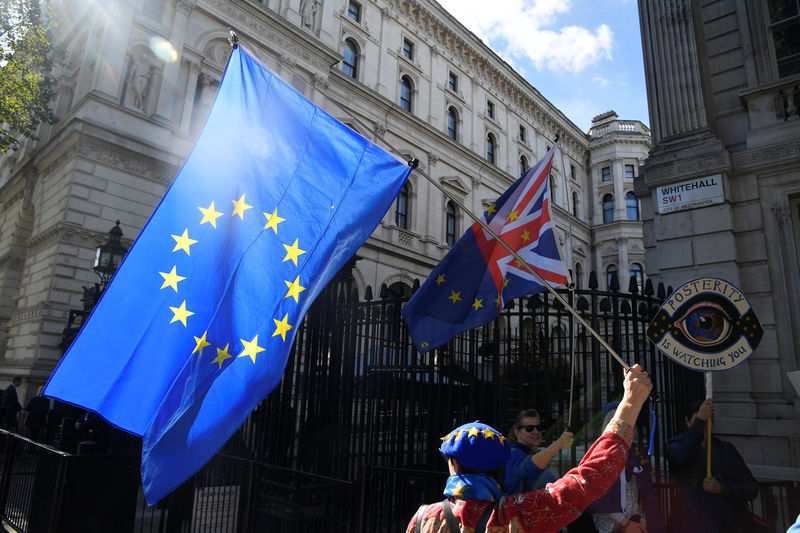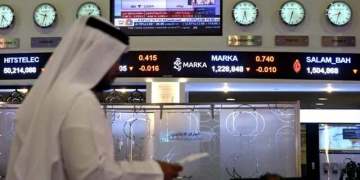 © Reuters. An anti-Brexit demonstrator holds a flag outside Downing Street in London
© Reuters. An anti-Brexit demonstrator holds a flag outside Downing Street in LondonBy Gabriela Baczynska
BRUSSELS (Reuters) – European Union negotiators are ready to offer Theresa May a free-trade area after Brexit but say that, contrary to her “Chequers” plan, there must be a customs border that will make trade less than “frictionless”, according to an internal EU document seen by Reuters.
The document – three pages of “defensive points” for EU officials to make against the British prime minister’s July proposal on future ties – quotes EU chief executive Jean-Claude Juncker on Sept. 12 saying that May’s push for UK goods to stay in the EU market under a “common rulebook” is an unacceptable bid to stay “only in parts of [the single market] you choose”.
Reflecting comments made since July by the EU’s chief Brexit negotiator, Michel Barnier, and by national leaders who rebuffed May in person last week at a Salzburg summit, the document lays out the bloc’s negotiators’ thinking on the Chequers plan, which also faces stiff opposition within May’s own Conservative Party.
After being apparently taken aback by fellow leaders’ stance in Salzburg, May complained that the EU had not detailed its reasons for rejecting Chequers, named after her residence where she hammered it out with ministers as a compromise solution.
However, the EU paper does go into some detail, concluding that Chequers would “give the UK an unfair competitive advantage”. It also stresses that officials “welcome…proposals to develop an ambitious new partnership” for which the Chequers proposal of a “free trade area” should be “the starting point”.
Britain’s goods could only get unfettered access to the EU’s market if the UK remains “fully bound by the EU acquis (accumulated legislation) in the same way as other single market members, including supervision and enforcement”.
Since Britain has firmly ruled that out, saying it will leave the EU’s single market and the customs union, the document says a free trade agreement (FTA) – akin to the ones the bloc has with Canada or Japan – is the only remaining option.
“An FTA cannot ensure entirely ‘frictionless’ trade,” the document continues, adding that there must be a customs border between the EU and Britain after Brexit.
“As a result, the UK’s goods trade will over time be less closely integrated economically with the EU than it is now. For example, cross-border supply chains will not operate seamlessly.”
Fusion Media or anyone involved with Fusion Media will not accept any liability for loss or damage as a result of reliance on the information including data, quotes, charts and buy/sell signals contained within this website. Please be fully informed regarding the risks and costs associated with trading the financial markets, it is one of the riskiest investment forms possible.
Source: Investing.com


























